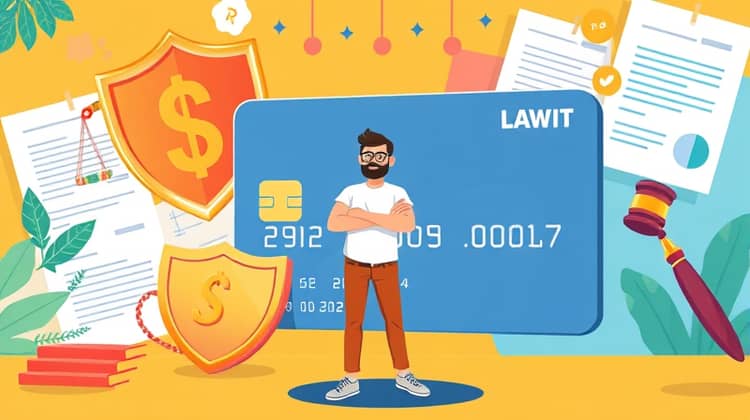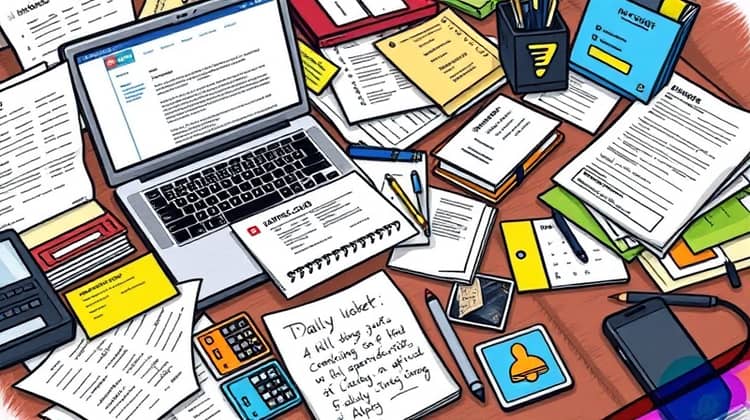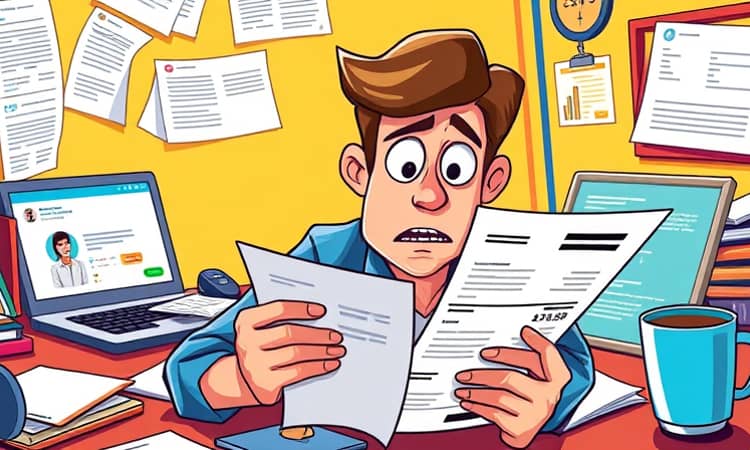When you spot an unfamiliar or incorrect charge on your credit card statement, it can be concerning. Knowing your rights and the steps to take can empower you to resolve the situation effectively. Disputing charges may seem daunting, but this guide provides a clear pathway to address erroneous transactions and protect your financial interests. Here’s how you can dispute credit card charges step-by-step.
Understanding your rights as a consumer is crucial when it comes to handling disputes with credit card companies. The Fair Credit Billing Act (FCBA) protects consumers by allowing them to dispute charges and seek resolution without facing negative repercussions on their credit history. This guide will provide detailed instructions on how to dispute a charge effectively.
Understanding Your Rights

When it comes to credit card transactions, consumers are afforded certain protections under the law. The Fair Credit Billing Act allows you to dispute charges that you believe are inaccurate or unauthorized. Understanding these rights is the first step in the dispute process, which can help ensure that you do not have to pay for a product or service that you never received or that was not as described.
It's important to know that you must act promptly to dispute a charge. The FCBA requires you to notify your credit card issuer within 60 days of receiving your billing statement that contains the disputed charge. Failing to do so may result in you losing the right to dispute the charge. Familiarize yourself with your issuer’s specific policies and procedures for disputes.
- You have the right to dispute transactions you did not authorize.
- You have the right to dispute charges for goods and services not received.
- You have the right to dispute billing errors or incorrect amounts charged.
- You have the right to a timely investigation and response from your credit card issuer.
By understanding your rights and the process involved in disputing a charge, you’re better prepared to tackle any discrepancies that may arise on your credit card statements. Now that you’re informed, let’s move on to the first practical step in the dispute process.
Step 1: Review Your Statement

Your first course of action when you notice a suspicious charge is to carefully review your credit card statement. This means confirming the transaction details such as the merchant's name, the amount charged, and the transaction date. Sometimes, merchants may use different names than what you expect, leading to confusion regarding a legitimate charge.
Take notes on the specific charges you wish to dispute, as detailed records will be essential as you progress in disputing a charge. Gathering this information before you contact your merchant or card issuer will help streamline the resolution process.
Step 2: Contact the Merchant

Before escalating the issue to your credit card issuer, it's generally a good idea to first reach out to the merchant involved in the dispute. Many times, merchants are willing to resolve customer issues directly by providing refunds or correcting billing errors. Gather your documentation, including your receipts and order confirmations, to support your case during this conversation.
When contacting the merchant, be polite but firm. Explain the situation clearly and provide them with the transaction details. Request that they rectify the issue, whether it involves a charge reversal or an explanation of the charge. Most businesses value customer satisfaction and may take action promptly.
- Contact the customer service number listed on your receipt.
- Provide the merchant with your account information and the date of the transaction.
- Be clear and concise in explaining the issue you have with the charge.
- Request a specific resolution, whether it’s a refund or an adjustment.
After speaking to the merchant, be sure to document the outcomes of that conversation. If the issue is resolved, keep a record of the resolution for your records. If not, you may proceed to the next step of the dispute process.
Step 3: Gather Documentation

Organizing all relevant documents is crucial when disputing a credit card charge. This could include invoices, receipts, emails with the merchant, and any records of communication you've had with them. The more comprehensive your documentation, the stronger your case will be when you present it to your credit card issuer.
Make copies of these documents and prepare a written summary of the dispute, outlining the key points and the resolution sought. This will ensure clarity when you reach out to your credit card issuer for further assistance.
- Credit card statement highlighting the disputed charge.
- Receipts or invoices from the merchant.
- Correspondence with the merchant regarding the dispute.
- Any evidence supporting your claim (e.g., photos of a faulty product).
Having this documentation readily available will facilitate a smoother process when you contact your credit card issuer and ensure they have all the necessary information to investigate your claim properly.
Step 4: Contact Your Credit Card Issuer

Once you have your documentation in order, the next step is to contact your credit card issuer. You can typically find the customer service phone number on the back of your card or on your statement. When you reach out, inform the representative that you are disputing a charge and be prepared to provide your documentation and details of the transaction.
Your issuer will open a dispute investigation, which may take some time. During this period, they might hold you harmless for the disputed charge, but ensure you confirm this with them.
Step 5: Follow Up in Writing

After your initial contact with your credit card issuer, it's a good practice to follow up with a written summary of your dispute. This documentation serves as an official record of your claim and provides a reference point should further follow-ups be necessary later.
Include your account details, the date you contacted customer service, the nature of the dispute, and any supporting documentation in your letter or email.
- Write a formal letter to your credit card issuer summarizing your dispute.
- Include all relevant account information and transaction details.
- Attach copies of all documentation supporting your case.
- Keep a copy of the letter for your records.
Following up in writing not only reinforces your claim but also creates a clear trail of communication, which may prove useful should you need to escalate matters further.
Step 6: Await a Decision

After filing your dispute, your credit card issuer will investigate the claim. Typically, they have a limited amount of time—usually about 30 days—to conduct this investigation and reach a decision regarding the dispute. During this period, you may receive updates about the status of your case.
Patience is key at this stage; stay informed about the process and avoid any financial decisions that may complicate your case until a final determination is made.
Possible Outcomes

Once the investigation is complete, your credit card issuer will inform you of their findings. Depending on their decision, there are various potential outcomes regarding your dispute that can follow. It’s essential to understand these possible outcomes to know what to expect and how to react accordingly.
A favorable resolution will often result in a refund of the disputed amount, while an unfavorable outcome will necessitate an examination of the next steps.
- The charge may be reversed if your dispute is resolved in your favor.
- You may receive a partial credit depending on the circumstances of the purchase.
- If the dispute is denied, you will generally need to pay the disputed amount.
- You can appeal the decision, issuing further documentation if available.
Understanding these potential outcomes will help you prepare for each possibility and determine your next steps effectively should the situation require further action.
What if Your Dispute is Denied?

If your dispute does not end in your favor, it can be frustrating, but there are options available to you. First, review the reasons provided by your credit card issuer for the denial, as this insight can be helpful in understanding whether you have grounds to appeal the decision or if you need to explore alternate methods of resolution.
Should you choose to appeal, gather any additional documentation that could bolster your case and consider reaching out to consumer protection agencies for guidance on how to proceed.
Tips for Avoiding Disputes in the Future

While disputing charges can be straightforward, it’s best to minimize the likelihood of issues arising in the first place. Businesses sometimes make mistakes, but understanding how to shop wisely can help you reduce potential disputes.
To avoid credit card disputes in the future, consider the following tips:
- Review your statements regularly to catch discrepancies early.
- Keep detailed records of all transactions, including receipts and confirmations.
- Research merchants thoroughly before making purchases, especially online.
- Use credit cards from reputable issuers that have good customer service practices.
By implementing these proactive measures, you can significantly decrease the chances of disputes arising and enjoy smoother shopping experiences in the future.
Conclusion

Disputing credit card charges may seem like a complicated process, but with the right knowledge and steps, you can effectively navigate it. Understanding your rights and the dispute procedures allows for a more constructive approach to handling any erroneous charges. Whether resolving the situation through direct communication with the merchant or appealing to your credit card issuer, staying informed will work to your advantage.
As a consumer, your rights are protected, and knowing how to assert them can lead to satisfactory resolutions when issues arise. Remember to follow the steps in this guide to ensure your disputes are handled efficiently and effectively.














